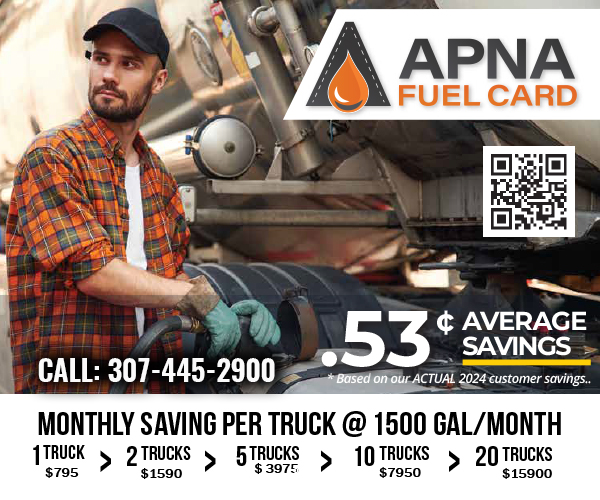The trucking industry is a vital component of the North American economy, serving as the backbone of trade between the United States and Canada. The two nations share one of the largest bilateral trade relationships in the world, with over $700 billion in goods and services exchanged annually. The trucking industry facilitates a significant portion of this trade, which transports everything from automotive parts and machinery to food products and raw materials across the border. However, the U.S. government’s imposition of tariffs on Canadian goods has created ripple effects that profoundly impact the trucking industry, from operational costs to cross-border logistics.
The Role of Tariffs in U.S.-Canada Trade
Tariffs are taxes imposed on imported goods, often used to protect domestic industries or address trade imbalances. In recent years, the U.S. has imposed tariffs on Canadian steel, aluminum, and other goods, citing national security concerns and unfair trade practices. While these tariffs aim to bolster U.S. manufacturing, they have had unintended consequences for the trucking industry, which relies heavily on the seamless flow of goods between the two countries.
Increased Costs for Trucking Companies
One of the most immediate effects of tariffs is increased costs for trucking companies. When tariffs are imposed on Canadian goods, the price of those goods rises, leading to higher costs for U.S. manufacturers and retailers. These increased costs are often passed down to trucking companies through higher fuel prices, equipment, and maintenance expenses. For example, tariffs on steel and aluminum have driven up the cost of manufacturing trucks and trailers, making it more expensive for trucking companies to maintain and expand their fleets.
Additionally, tariffs can reduce demand for certain goods, affecting the volume of freight transported. If U.S. companies reduce their imports of Canadian goods due to higher costs, trucking companies may see a decline in shipments, leading to lower revenue and potential layoffs.
Disruptions in Supply Chains
The trucking industry thrives on efficiency and predictability. Tariffs, however, introduce uncertainty into the supply chain, disrupting the flow of goods and creating logistical challenges. For instance, when tariffs were imposed on Canadian steel and aluminum, some U.S. manufacturers began sourcing these materials from other countries, such as Mexico or Brazil. This shift in sourcing requires trucking companies to adjust their routes and operations, often at a higher cost.
Moreover, retaliatory tariffs imposed by Canada on U.S. goods have further complicated the situation. Products like dairy, pork, and whiskey have been targeted by Canadian tariffs, reducing the demand for these goods in Canada and affecting the trucking companies that transport them. This tit-for-tat trade war creates a volatile environment for the trucking industry, making it difficult to plan for the long term.

Border Delays and Regulatory Challenges
Tariffs have also contributed to delays at the U.S.-Canada border, as customs officials work to enforce new trade policies and verify the origin of goods. These delays can lead to longer wait times for truck drivers, increased fuel consumption, and higher operational costs. For an industry that operates on tight schedules, even minor delays can significantly impact profitability.
Furthermore, trade policy uncertainty has led to increased regulatory challenges for trucking companies. Compliance with new tariff regulations requires additional paperwork and administrative effort, adding to the burden on trucking companies already grappling with rising costs.
The Human Impact: Drivers and Small Businesses
The effects of tariffs are not limited to large trucking companies; they also impact independent truck drivers and small businesses. Many owner-operators rely on consistent freight volumes to make a living, and any trade disruption can directly impact their income. Small trucking companies, which often operate on thinner margins, are particularly vulnerable to the increased costs and reduced demand caused by tariffs.

Looking Ahead: Navigating a Changing Landscape
The trucking industry is no stranger to challenges, but the imposition of tariffs on Canadian goods has introduced a new layer of complexity. To navigate this changing landscape, trucking companies must adapt by diversifying their customer base, optimizing routes, and investing in technology to improve efficiency. Additionally, industry leaders call for greater collaboration between the U.S. and Canadian governments to resolve trade disputes and create a more stable environment for cross-border commerce.
In the long term, the trucking industry’s resilience will depend on its ability to weather trade policy uncertainties while continuing to provide the essential services that keep the North American economy moving. As the U.S. and Canada work to address their trade differences, the hope is that a mutually beneficial agreement can be reached—one that supports both nations’ economies and ensures the continued success of the trucking industry.
Conclusion
Imposing tariffs on Canadian goods has had far-reaching effects on the trucking industry, from increased costs and supply chain disruptions to border delays and regulatory challenges. While the industry has shown remarkable resilience in these challenges, the long-term impact of tariffs remains uncertain. As policymakers on both sides of the border address trade issues, the trucking industry will continue to play a critical role in maintaining the flow of goods and services between the U.S. and Canada. The hope is that a resolution that supports economic growth and stability for all stakeholders involved can be found.


